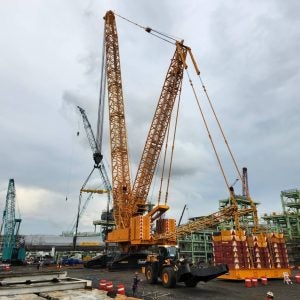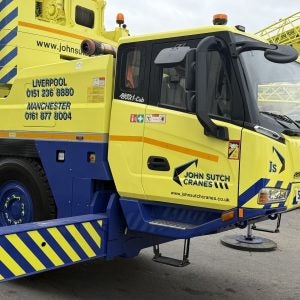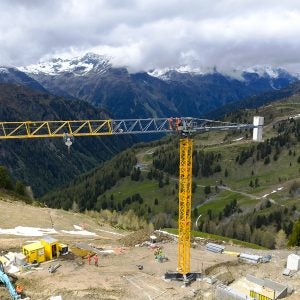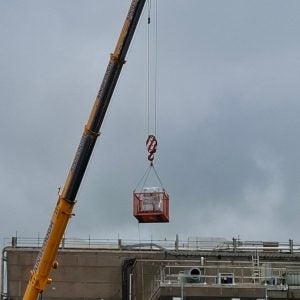Crane operator and mechanic licensing in New York City is currently run, for most crane types, through a scheme run by the NYC Department of Buildings. The licensing programme hit the headlines last year after former acting chief inspector of cranes James Delayo admitted taking bribes to license operators who hadn’t passed exams.
The lifting trade in New York City is dominated by two union branches, IUOE Local 14, representing operators, and IUOE Local 15, representing mechanics, among others. Both union locals have been investigated for organised crime links. In 2003, federal indictments charged 42 people with racketeering, in connection with Colombo and Genovese organised crime family control of the two locals. In July 2008, IUOE Local 14 settled civil racketeering claims by agreeing to allow the courts to appoint an ethical practices attorney and hearing officer, and by agreeing to changes to its membership polices. Both Locals have since been reformed. However, the licensing scheme, and the control it gives them over New York’s construction trade, remains a source of concern for many.
REBNY president Steven Spinola is frank about his group’s interests when it comes to changing the scheme: “With high rise construction, the operators who control the cranes control all of the vertical movement of all materials and people, and therefore have the ability to halt work on a construction site. As a result, we’ve got two union locals, 14 and 15, who, even in the last three to four difficult years, have not signed any Project Labor Agreements to control costs and prevent construction projects from stalling. Their contracts protect a tremendous amount of non-productive work. A study we commissioned shows that over three years, this will result in nearly $100m of non-productive work on the World Trade Center site.
“There are triggers in the agreements with the unions for the number of mechanics and engineers needed on a job. Many of these triggers do not reflect the current needs of the job site. For example, each crane over 50 tons requires an oiler, whose only job nowadays is to start the machine and park it at the end of the day. Additionally, there is a requirement for a 3-piece maintenance engineer to be available to repair certain types of equipment, such as cranes. Since much of the construction equipment are leased, if something happens to the crane, the owner of the crane would bring in his or her own technician and will often not allow maintenance engineer employed by the general contractor to repair the crane. However, the labor contract requires the construction manager to employ a maintenance engineer directly whenever certain equipment is operating on site. .
“Some master mechanics, on salaries of $170,000, are costing as much as $700,000 a year after over time and other expenses.”
The campaign by REBNY comes as the board goes into talks with the unions. Spinola says, “Negotiations for new contracts with Local 14 and 15 have begun this week. The unions are being asked to eliminate nonproductive work. We want a fair, honest, system that results in a level playing field for everyone.
“The proliferation of nonproductive work and disproportionate benefit provisions for these two trades has a damaging effect on other unions and construction site morale. It becomes difficult for others to continue to make concessions to reduce the rising costs of construction while others are getting compensated for doing nothing. New York City’s economy needs construction jobs to be part of the recovery and in order to get more projects going, every trade organization needs to consider reducing costs.”
It’s not though, Spinola argues, merely a question of cutting costs for developers. REBNY would like to see New York City adopt NCCCO or equivalent licensing. He explains, “After the two major accidents in New York in 2008, the City commissioned an independent High Risk Construction Oversight Study which recommended using national licensing. The Building Trades Department of the national AFL-CIO’s investigation into the accidents also recommended a national license.
“For the national certification, you have to be tested on the particular type of crane you are going to work on. In NYC, the test requires the applicant to obtain the required training hours from an already licensed operator, who are largely union members, on an privately owned crane. We believe that, for safety, this should be changed.
“The national program requires re-certification every five years. The current New York license is for life.”
One objection to adopting NCCCO certification in New York City is that the city’s dense urban environment make it a fundamentally different place to work than less crowded parts of the US. Spinola doesn’t share that concern: “We’re talking about people who are working in Chicago, or Philadelphia, or Las Vegas, places that have similar density issues, coming to work in New York. We don’t think anyone working in Kansas will come and claim they can work here.”






